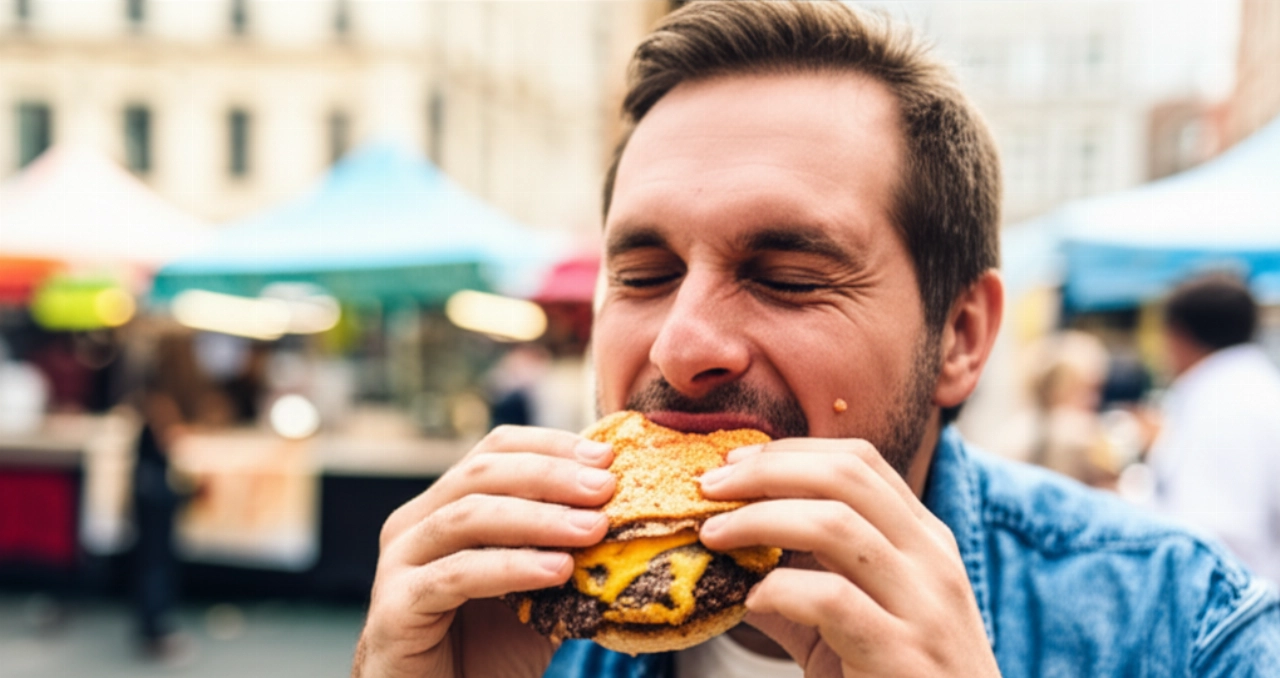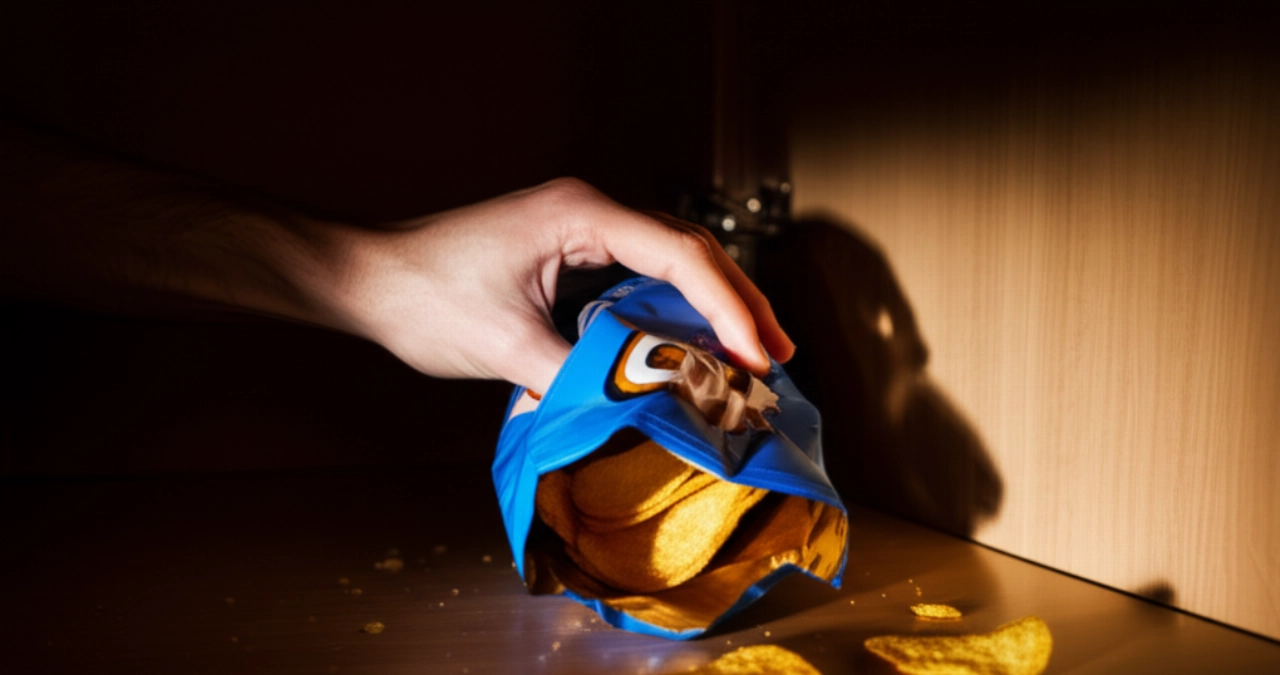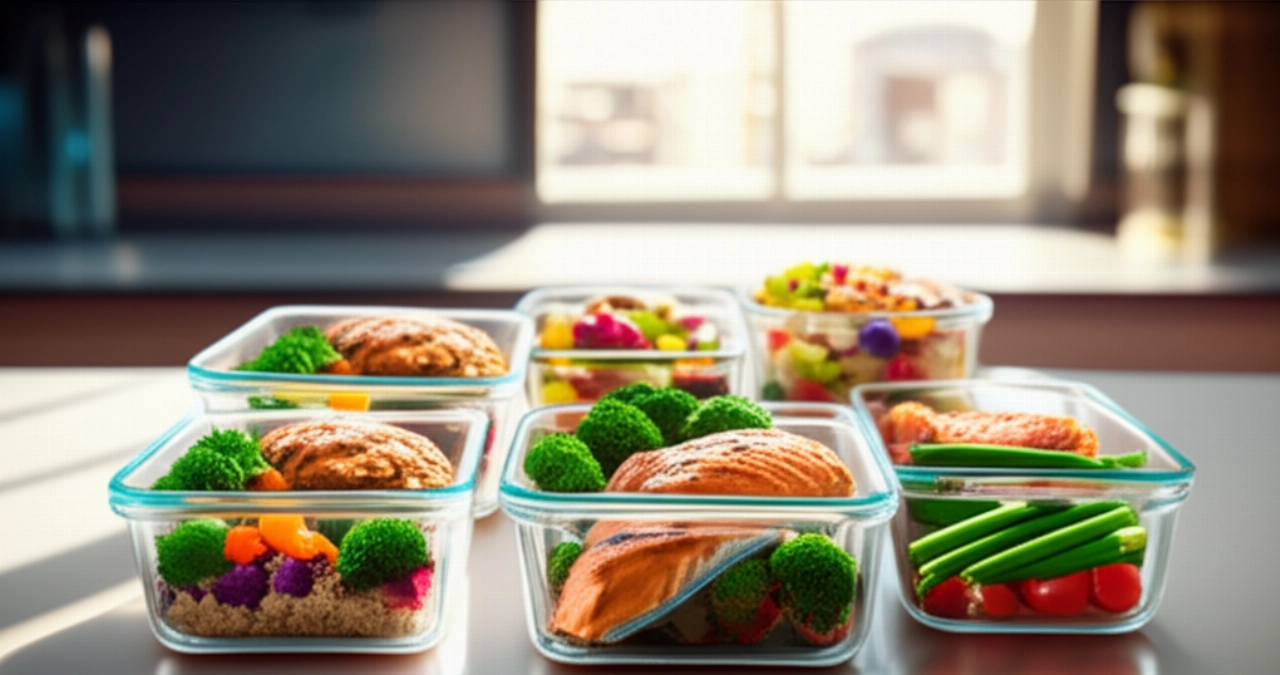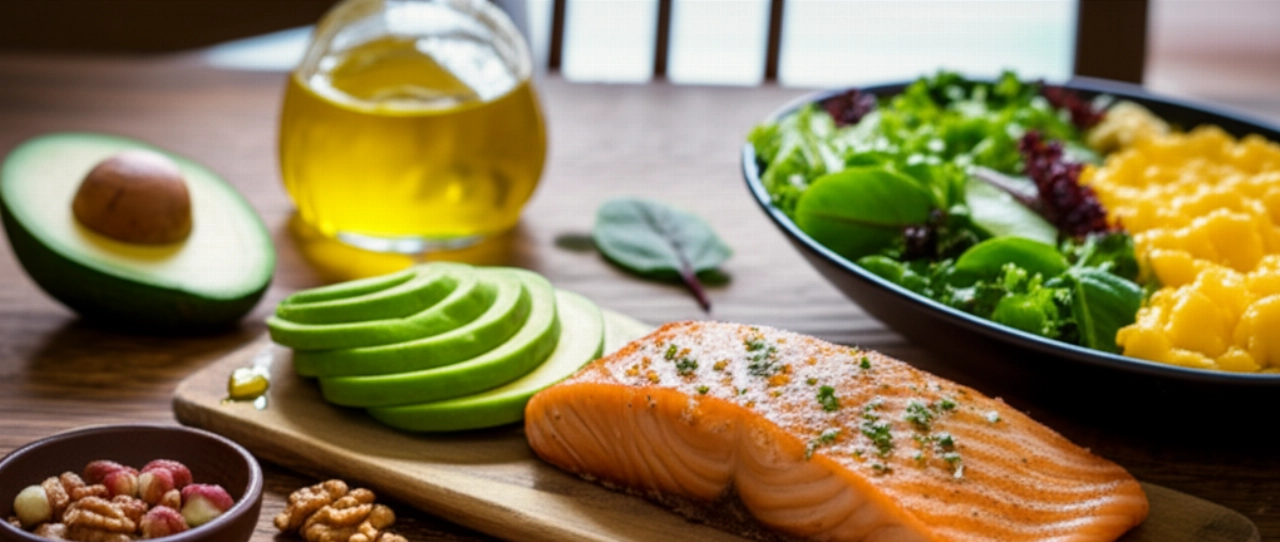Have you ever felt guilty after giving in to that irresistible craving for pizza or chocolate? That feeling of having "ruined everything," of having nullified days of sacrifice, is it familiar to you?
If the answer is yes, know that you are not alone. Many approach dieting as a prison of deprivation, where every "slip-up" is an unforgivable crime. This mindset, unfortunately, is the root of many failures, the yo-yo effect, and a tormented relationship with food.
But what if we told you that a cheat meal, if managed intelligently and strategically, can become a powerful ally in your weight loss journey? Not an enemy to fight, but a tool to boost your metabolism, keep motivation high, and build a healthy and sustainable relationship with food.
On this page, we will guide you beyond guilt and nutritional confusion. We will show you how to transform the concept of a "cheat meal" from an obstacle into a springboard for your success. Get ready to discover a new perspective on food, dieting, and, above all, on yourself.

Beyond Guilt: Why the Strategic Cheat Meal is Your Ally for Lasting Weight Loss
For years, you've been taught that dieting is synonymous with absolute restriction. Every extra calorie, every "forbidden" bite, a step backward. This view is not only obsolete but also harmful to your psychology and your metabolism.
Imagine your body as an incredibly efficient machine. When you're on a diet, you reduce calorie intake to encourage it to burn fat reserves. Great, right? But there's a downside: the body is smart and adapts. If restriction is constant and prolonged, your metabolism slows down to conserve energy. It's a survival mechanism, but for those who want to lose weight, it's an obstacle.
This is where the strategic cheat meal, or "free meal," comes into play. It's not a lapse, but a calculated move. Temporarily reintroducing a higher calorie intake, especially of carbohydrates, can:
- Boost Metabolism: Stimulates the production of leptin, a hormone that regulates satiety and energy expenditure, "telling" your body that there's no famine and it can continue to burn fat effectively.
- Replenish Glycogen Stores: Essential for muscle energy, especially if you exercise.
- Improve Mood and Motivation: Breaking the monotony of dieting with a desired meal reduces psychological stress, prevents compulsive binge eating, and helps you stay on track long-term. It's a "reward" that reminds you that life also includes taste and pleasure.
- Promote Dietary Flexibility: Teaches you that no food is "bad" in absolute terms and that balance is key. This is crucial for the sustainability of your journey.
Do you understand now why it's not a "sin," but a true nutritional strategy? It's the bridge between the rigor of dieting and the serenity of a life where food is a pleasure, not a source of anxiety.

The Science of the Smart Cheat Meal: When, How, and How Much to Boost Your Metabolism
Alright, we've established the "why." Now let's move on to the "how." The strategic cheat meal is not a license to binge uncontrollably, but an art that requires precision. Here are the fundamental principles:
1. Frequency: Not Too Often, Not Too Little
- For those starting out or with a lot of weight to lose: Begin with one cheat meal every 10-14 days. This allows you to establish good habits and see initial results without too frequent interruptions.
- For those in an advanced phase or with a slower metabolism: A weekly cheat meal (or even two, if well-managed and under professional supervision) can be effective in keeping metabolism active and motivation high.
- Listen to your body: The ideal frequency depends on you, your physical activity level, your starting point, and your metabolic response.
2. Quality: Not Everything is Allowed (or Rather, Not Everything is Optimal)
The goal is to recharge, not to intoxicate. Choose foods you enjoy, but seek a certain balance:
- Complex carbohydrates: These are your best friends for a strategic cheat meal. Pasta, rice, bread, potatoes, pizza (in moderation) are excellent for restoring glycogen and stimulating leptin.
- Proteins: Keep them present for satiety and muscle mass.
- Fats: Be careful with saturated and trans fats. An excess can slow digestion and cause heaviness.
- Avoid refined sugar binges: Industrial sweets and sugary drinks can cause glycemic spikes and inflammation, negating some of the benefits.
3. Quantity: Controlled, Not Unlimited
It's not a "free day" to eat until you burst. It's a free meal:
- One meal, not an entire day: Concentrate your "cheat meal" into a single meal (lunch or dinner), not an entire day of excesses.
- Eat until satisfied, not until indigestion: Enjoy the food, savor every bite, but stop when you're satisfied, not when you're bloated.
- Plan: Decide in advance what you will eat. This helps you maintain control and avoid impulsive choices.
Remember, the goal is to trick your metabolism and gratify your mind, not to sabotage your efforts. The key is moderation and awareness.

The "Uncontrolled Cheat Meal" Trap: Avoid the 3 Mistakes That Sabotage Your Diet
Like any powerful tool, a cheat meal can also become a double-edged sword if used incorrectly. As an expert, I've seen too many people fall into these common traps. Avoid them so as not to nullify your efforts:
Error 1: The "All or Nothing" Mentality
The problem: Thinking that one cheat meal means "I've ruined everything, might as well keep eating badly." This leads to an uncontrolled binge that lasts for hours or days, transforming a single free meal into a complete derailment.
The solution: Embrace dietary flexibility. A cheat meal is a single event, not a condemnation. If you overdid it, don't punish yourself. The next day, simply return to your healthy eating plan. There's no need to compensate with fasting or strenuous workouts; just resume your routine, and your body will readjust.
Error 2: The Cheat Meal as an Emotional Outlet
The problem: Using food as an outlet for stress, boredom, sadness, or frustration. This is not a strategic cheat meal, but emotional eating, which doesn't solve the root problem and creates a vicious cycle of guilt and food dependence.
The solution: Learn to distinguish physical hunger from emotional hunger. Find healthy alternatives to manage emotions: a walk, a call to a friend, a hobby, meditation. If you feel that emotional eating is a persistent problem, consider talking to a professional who can help you develop more effective coping strategies.
Error 3: Ignoring Food Quality
The problem: Seeing the cheat meal as an opportunity to eat only ultra-processed "junk food," rich in refined sugars, trans fats, and additives. These foods, besides being poor in nutrients, can cause inflammation, glycemic spikes, and a feeling of exhaustion that negates the metabolic benefits of the cheat meal.
The solution: Even with a cheat meal, try to make conscious choices. If you crave pizza, choose quality ingredients. If you want a dessert, perhaps prepare it at home with better ingredients. The goal is pleasure and replenishment, not self-destruction. A smart cheat meal is a meal that gratifies you without making you feel physically or mentally unwell.
By avoiding these mistakes, you will transform the cheat meal from a potential saboteur into a true ally for your well-being and weight loss journey.
From Doubt to Certainty: Your Personalized Journey with Dietasnella.it
You've seen how an apparently simple concept like a "cheat meal" can hide complexities and strategies. This is just a small example of how fascinating and personalized nutrition is as a science, far removed from lists of forbidden foods or generic advice you find online.
The truth is, every body is unique. Your metabolism, your lifestyle, your food preferences, your goals, and even your emotional relationship with food are factors that profoundly influence the success of a diet. That's why "one-size-fits-all" solutions almost always fail, leaving you with the frustration of past failures and the fear of not succeeding.
At Dietasnella.it, our philosophy is clear: we don't just give you a diet; we build a tailored journey with you. A journey that considers who you are, what you like, and how you live. We don't believe in deprivation, but in nutritional education that makes you autonomous and aware. We don't leave you alone with a list of foods; instead, we provide you with the tools, knowledge, and support to achieve your goals sustainably and without hunger.
Our approach is based on:
- Science and Expertise: Every plan is developed by expert nutritionists, based on the latest scientific evidence.
- Extreme Personalization: We analyze your needs, tastes, and habits to create a plan that integrates perfectly into your life.
- Sustainability and Taste: We teach you to eat well, with taste, without giving up the pleasures of the table, making the journey enjoyable and lasting.
- Support and Motivation: We are your trusted nutritional coach, ready to guide you, clarify your doubts, and celebrate every success.
Stop feeling overwhelmed by nutritional confusion. Stop fearing the scale and reliving the nightmare of the yo-yo effect. It's time for a different approach, an approach that understands and supports you.
Frequently Asked Questions About Cheat Meals in Diet
How often can I have a cheat meal per week?
The ideal frequency depends on your starting point, your goal, and your metabolic response. Generally, for those starting out, one cheat meal every 10-14 days is recommended. For those in a more advanced phase or with a more active metabolism, one free meal per week can be effective. The important thing is that it's a "strategic" meal, not an entire day of excesses.
Will a cheat meal make me gain weight?
No, if managed correctly, a strategic cheat meal will not make you gain weight. In fact, it can help reactivate your metabolism and prevent the slowdowns typical of prolonged diets. A temporary weight increase on the scale after a cheat meal is often due to water retention related to increased carbohydrates and sodium, not actual fat accumulation. You will return to your normal weight in a few days.
Can I cheat with any food?
Ideally, a cheat meal should be a meal that gratifies and recharges you. Prioritize foods you enjoy but try to maintain a certain balance, perhaps with a good intake of complex carbohydrates and proteins. Avoid overdoing refined sugars and saturated fats, which can cause inflammation and a feeling of heaviness. The goal is conscious pleasure, not uncontrolled excess.
What to do if I overdid my cheat meal?
Don't panic or feel guilty! It's normal to sometimes overdo it. The most important thing is not to punish yourself and not to continue eating poorly. The next day, simply return to your healthy and balanced eating plan. There's no need to fast or do strenuous workouts to "compensate." Your body is resilient and will readjust quickly.
Is a cheat meal suitable for all types of diets?
The concept of a "free meal" or "strategic cheat meal" can be adapted to many types of diets, but its specific application may vary. For example, in very strict ketogenic diets, a carbohydrate "refeed" is a specific strategy and must be managed with greater care. In general, for balanced and sustainable diets, a cheat meal is an excellent tool. It's always advisable to discuss it with a professional to understand how best to integrate it into your specific plan.
You've taken an important step: you've understood that a cheat meal is not an enemy, but a potential ally. You've learned to manage it intelligently, avoid traps, and transform it into a driver for your metabolism and motivation. It's no longer a question of "what I can't eat," but "how I can eat intelligently to achieve my goals."
Perhaps you're thinking: "This is all interesting, but how do I apply it to my busy life? What if I fail again?" The answer is simple: you don't have to do it alone. Your body deserves a clear path that leads you to real and lasting results, without stress and without deprivation.
The first step isn't a restrictive diet, but understanding your needs to create a tailor-made plan for you. It's free, no obligation, and will give you the map to reach your goal. Click here, tell us about yourself, and discover how you can finally reach your ideal weight feeling great. Start transforming your relationship with food now.





